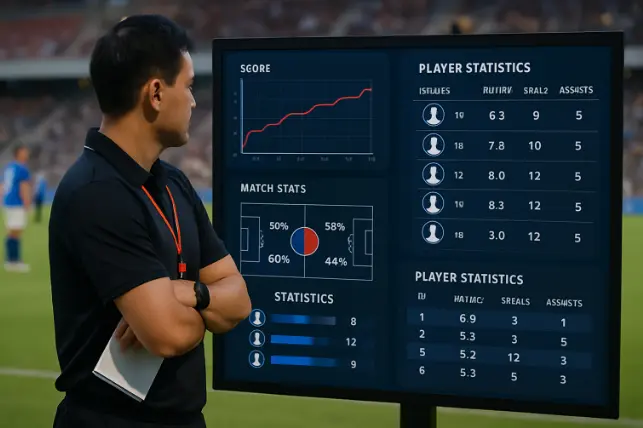How Data Analytics Is Changing the Game in Sports Administration
The Rise of Data Analytics in Sports Administration
Sports administration is in the midst of a technological revolution. Where intuition and tradition once guided many front-office decisions, data analytics now drives strategic thinking. From ticket sales teams to general managers, nearly every role in a sporting organization is embracing new data-driven approaches. The influence of analytics has surged, with professional leagues and teams investing heavily in technology and talent to gain a competitive edge. Those looking to gain a foothold in this evolving landscape are increasingly pursuing advanced educational credentials, such as a Masters in Sports Management degree online, which equips future leaders with both business acumen and analytical expertise.
This transition is not happening in isolation. According to recent reports, data is as critical to financial operations and fan engagement strategies as it is to the activities on the field. This shift is transforming not only how games are played, but how sports organizations operate, communicate, and grow.
The new era of sports administration is defined by responsive, agile, and informed decision-making. Executives leverage analytics to forecast market trends, optimize player recruitment, and even design more engaging fan experiences. For professionals keen on making a mark, staying current with the latest data analysis tools and business insights has never been more important.
Data analytics in sports is not restricted to elite teams and leagues. Even community and college programs are turning to numbers to guide everything from player development to facility management, fostering a culture that values evidence-based strategies with measurable outcomes. This includes emerging areas like darts, where precision statistics and performance metrics are being used to sharpen player skills and enhance spectator engagement.
Key Areas Where Data Analytics Delivers Value
- Player performance tracking and injury prevention: Teams use wearables, GPS trackers, and health data to monitor player fatigue, predict injuries, and tailor training programs. This proactive approach extends athletic careers and maximizes performance.
- Fan engagement and personalized marketing: Data insights from ticket sales, social media, and digital interactions help organizations deliver targeted promotions, dynamic content, and unique game-day experiences that drive loyalty and revenue growth.
- Revenue optimization and dynamic pricing: Analytics helps organizations dynamically set ticket prices, forecast demand, and identify new revenue streams, ensuring financial sustainability in competitive markets.
- Tactical and strategic planning for teams: Coaches and managers analyze real-time game data, opposition tendencies, and player statistics to refine tactics, improve outcomes, and gain a strategic edge over rivals.
Real-World Examples of Analytics in Action
Sports organizations across the globe are harnessing the power of analytics to shape their futures. For example, in European soccer, clubs such as Liverpool FC have leveraged data-based recruitment strategies to identify undervalued talent, resulting in on-field success and stronger financial performance. In the NBA, teams like the Houston Rockets have utilized advanced statistics to develop offensive strategies centered on the three-point shot, fundamentally altering the style of play across the league.
Collegiate athletic programs use data to optimize recruiting—analyzing high school player trends, injury histories, and even social media activity. According to Forbes, colleges using analytics for game preparation and player development experience measurable improvements in performance and efficiency.
Essential Skills for Sports Administrators in a Data-Driven World
Succeeding in modern sports administration requires a unique blend of leadership and technical skills. Administrators must know how to:
- Interpret complex data sets and apply findings to real-world scenarios
- Communicate insights clearly with diverse stakeholders
- Navigate popular analytics platforms such as Tableau, SPSS, or R
- Work cross-functionally with IT, marketing, and coaching professionals
- Balance innovation with best practices in privacy and data ethics
Developing these skills—through academic programs, internships, or on-the-job experience—ensures administrators remain valuable assets as the industry continues to evolve.
Challenges and Ethical Considerations
As data analytics become increasingly integral to sports, administrators face mounting challenges surrounding privacy, data accuracy, and fair use. Sensitive health and performance information must be collected, stored, and analyzed securely to protect both athletes and organizations. Mistakes in data interpretation or bias in analytics algorithms can also lead to poor decisions or perceived unfairness. Leaders in the field must actively create policies that prioritize transparency and accountability while working closely with legal and technology experts to ensure compliance with rapidly evolving regulations.
Steps for Students and Career Changers
For those interested in joining the wave of data-driven sports administration, the journey begins with foundational skills in statistics and data analysis. Online courses, open-source data projects, and internships with teams or agencies provide hands-on experience. Participating in sports hackathons or volunteering for analytics roles at local sports events can help build a resume and professional network. Academic programs, such as the online Master’s in Sports Management degree, offer comprehensive training that combines industry knowledge with technical expertise.
The Future of Sports Administration
Looking ahead, technologies such as artificial intelligence, machine learning, and advanced wearable devices promise to deepen the insights available to sports administrators. AI tools can now process massive data sets in real time, uncovering patterns previously invisible to the human eye. Machine learning models help predict player performance, optimize marketing campaigns, and customize fan experiences. As these innovations mature, the role of data in shaping winning organizations will only increase, creating opportunities for administrators willing to explore cutting-edge solutions.
The Lasting Impact of Data Analytics on Sports Administration
The fusion of sports and data analytics has created a new paradigm in administration. In this future, every decision, from stadium design to player acquisition and marketing, is grounded in data. Success in this environment requires a commitment to continual learning, an openness to innovation, and an unwavering regard for ethics. Those who embrace these principles will drive the next wave of success in the increasingly data-driven world of sports administration.
Also Read- The American Online Casino Boom: Exploring the Continued Dominance of American iGaming

